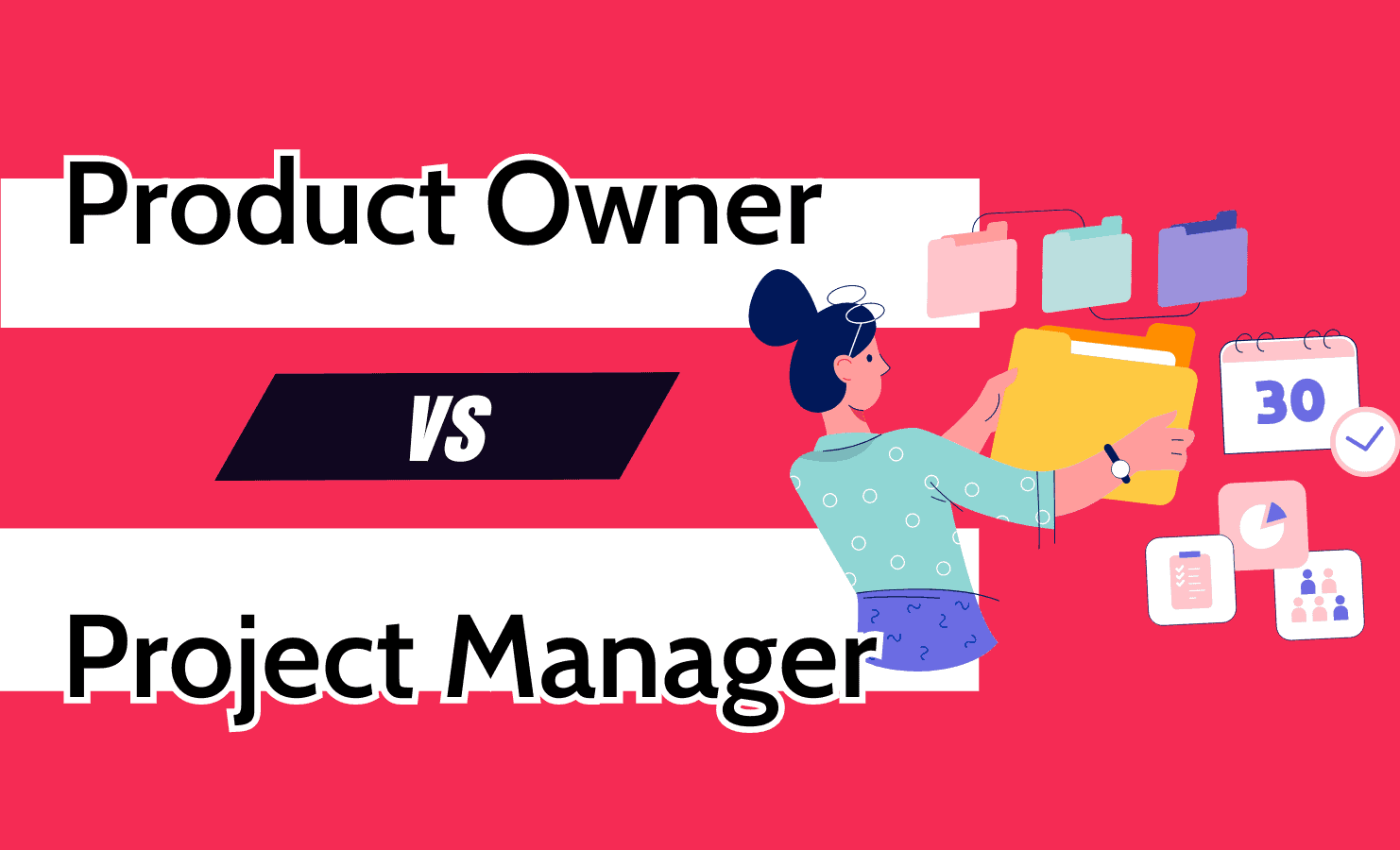
Product Owner vs Project Manager: Roles Explained in 2024 Search
Cloudwards.net may earn a small commission from some purchases made through our site. However, any earnings do not affect how we review services. Learn more about our editorial integrity and research process.
Why you can trust us
- 407 Cloud Software Products and Services Tested
- 3056 Annual Software Speed Tests
- 2400 plus Hours Usability Testing
Our team of experts thoroughly test each service, evaluating it for features, usability, security, value for money and more. Learn more about how we conduct our testing.
Key Takeaways: Product Owner vs Project Manager
- A project manager oversees an entire project team and is responsible for timelines, policies, procedures and business goals, whereas a product owner is responsible for the development team and product vision, and communicating with clients and stakeholders.
- Project managers and product owners are responsible for different aspects of a project, but their roles can overlap in several ways.
- Product owners and project managers must be excellent communicators and strong planners who know how to ensure clients and stakeholders receive the maximum return on their investment.
Facts & Expert Analysis About the Roles of Product Owners and Project Managers:
- Project Manager Earnings: Project managers in the U.S. holding the Project Management Professional certification can earn roughly $157,000 per year.
- Product Owner Earnings: Certified product owners in the United States can earn up to $130,000 annually.
- Obtaining Certifications: Many certifications are available for those who wish to become a project manager or a product owner.
Picking a new career in project management can be daunting, as there are many options. However, if you’ve narrowed your choices down to project manager or product owner and are looking at some of the best project management certifications to help advance your career but still aren’t sure which way to turn, our product owner vs project manager guide is for you.
In this guide, we’ll explain the roles of project managers and product owners, as well as the similarities and differences. We’ll even break down the differences in salary between the positions and the core skills needed for each.
Meet the experts
Learn more about our editorial team and our research process.
Product Owner vs Project Manager Role Comparison Table
Both product owners and project managers have responsibilities that set them apart. The table below lists what each role encompasses during a project.
| Functions: | Product Owner | Project Manager |
|---|---|---|
| Planning | Helps create the product vision and project scope. Creates and manages the product backlog, assigns tasks and helps with creating user stories, the definition of ready and the definition of done. | The project manager works to develop project plans, including timelines, resource management, budgets, risk management and project scopes. |
| Leadership | Leads the development team during the project to ensure the deliverable matches the product vision. | Leads and develops the entire project team and implements change management as needed. |
| Meetings | Takes part in daily meetings and helps the project manager lead review sessions. | Holds daily meetings, sprint and work session reviews, and retrospective meetings. |
| Communication | Communicates with the project manager, clients and stakeholders to ensure that everyone is on the same page and that customer needs are met. | Communicates face-to-face with the team and clients, is responsible for stakeholder management and ensures overall customer satisfaction. |
| Evaluations | Meets with clients and stakeholders during review sessions to demo the product with the development team. | Evaluates team and project performance by utilizing reports that show efficiency, team velocity and more. |
What Is a Product Owner in Project Management?
A product owner plays a vital role on project teams, as they’re responsible for communicating with stakeholders and clients, creating a product vision, leading a development team and successfully delivering the project’s final product. The role is generally used in agile project management but can be found in many project management methodologies.
Product Owner Key Roles & Responsibilities
Every role on an agile team is critical, from scrum masters and project managers to scrum developers and product owners. Below are the key responsibilities of product owners:
- Project planning: The product owner (PO) meets with the project manager, clients and stakeholders to help plan the project’s scope, define the product vision and demonstrate the value of the scrum framework or the work method being used.
- Sprint planning: Product owners focus on writing user stories (tasks) that help the development team create the product. During sprint planning, the PO, along with the development team, defines the definition of ready and definition of done, so the user stories can add the maximum amount of product value.
- Product backlog management: The backlog is where all project tasks are stored. The product owner’s responsibility is to organize the backlog, so tasks are ready for the workflow, including categorizing them by priority, assigning them to team members and adding them to upcoming sprints.
- Sprint reviews: During the project lifecycle, the PO, along with the scrum master and development team, holds sprint reviews after each sprint. During this time, the product owner and the development team demonstrate the latest iteration of the product to key stakeholders and clients, and must be receptive to new requests and feedback.
- Communication: The product owner must embrace agile guidelines by insisting on face-to-face chats with the development team, clients and stakeholders. The PO is responsible for updating clients and stakeholders and must deal with conflict on the team to ensure scrum anti-patterns do not become commonplace.
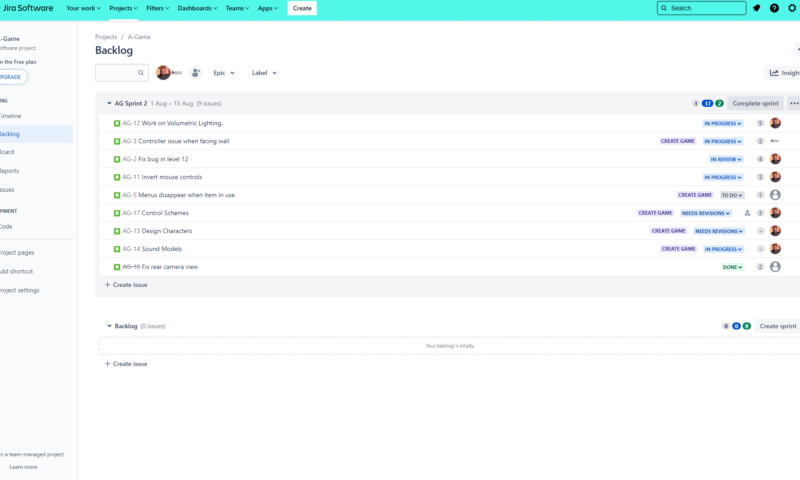
Product owners must manage the product backlog to ensure project objectives are met.
What a Product Owner Does Not Do
Along with the tasks that product owners must take care of, there are several that POs should not. We’ll list them below.
- Project management: It’s not the product owner’s responsibility to schedule tasks, monitor project progress, make project roadmaps, carry out budget development or track team progress.
- Resource management: Product owners should not take on resource management duties. These include procuring items needed for product development, managing staff members and managing project documents.
- Sole communicator: The product owner should never become the only team member communicating with business stakeholders and clients. In agile methodology, the entire team should communicate openly with everyone.
What Is a Project Manager?
A project manager is an individual who leads an entire project team and is responsible for planning, monitoring and completing the project at hand. Project managers are at the top of project teams in all company organizational structure charts and are responsible for ensuring that teams follow best practices and procedures.
Project Manager Core Roles & Responsibilities
Like product owners, project managers have many responsibilities and must wear many hats to ensure the project they’re working on goes smoothly. Below, we’ll list project managers’ key responsibilities.
- Project planning: Regarding planning, project managers are responsible for creating a project scope that stakeholders and clients agree with. The entire project is planned with a roadmap with milestones and due dates. Budgets are set and lists of resources are created.
- Resource management: Project managers are in charge of resources. This includes managing materials, assembling the team and ensuring that team members aren’t over- or underworked.
- Task management: Though product owners manage the task backlog, the project manager is responsible for ensuring all tasks have been assigned, that due dates have been set and that tasks are moving smoothly through the process. The best project management software can help with monitoring these tasks.
- Risk management: The project manager’s responsibility is to create risk management plans that can help teams overcome obstacles. Risks for each project must be identified, and a plan must be put in place to deal with those problems should they arise.
- Budget planning: Financial management is another area project managers oversee. Project managers create budgets, monitor cash flow and timelines, and help prevent scope creep.
- Communication: Project managers must use their communication skills to ensure their cross-functional teams know precisely what’s happening. Managers are responsible for holding daily meetings, review meetings and retrospective meetings, and must champion open, honest communication throughout the project.
- Project monitoring: The project manager is responsible for monitoring project progress. Managers must also monitor timelines, milestones, tasks, team velocity and more. Fortunately, many of the best cheap project management software platforms and best project management software options for small businesses offer robust reports.
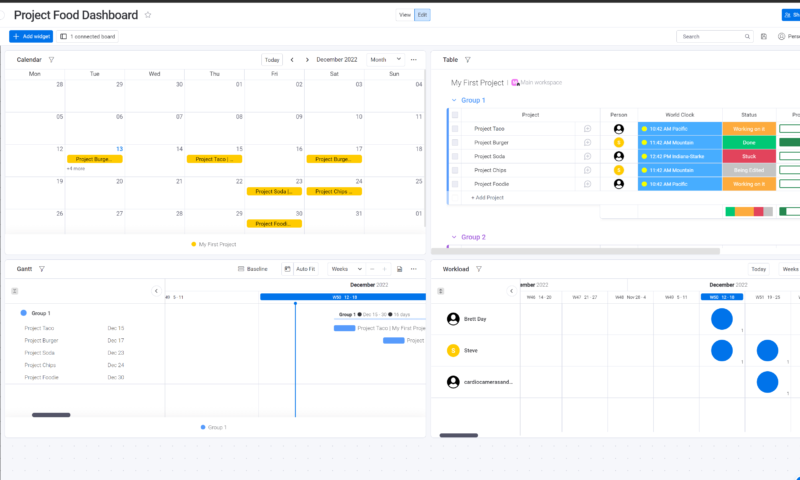
Software like monday.com offers project managers powerful reports
and dashboards that show many project goals and metrics.
What a Project Manager Does Not Do
Project managers wear many hats; however, they do not perform the following duties:
- Manage the backlog: The project manager does not get involved with the product backlog. This is the sole responsibility of the product owner.
- Define the product’s vision: Project managers do not participate in talks that define the product’s vision, nor do they work with the PO and development team to create user stories or define ready or done criteria.
- Lead stakeholder and client communication: The product owner handles daily and weekly stakeholder and client updates. There will be some interaction with them, but project managers should never lead conversations with clients or stakeholders.
Project Manager vs Product Owner Similarities & Differences
As you can imagine, there are a few differences between the product owner and project manager roles. Below, we’ll cover the key differences between the roles so you can better understand them.
Differences
- Responsibilities: Product owners and project managers have differing lists of responsibilities. One is responsible for ensuring the project is finished on time and under budget, while the other is responsible for creating a stellar product. One should not assume control of the other’s responsibilities.
- Creating the product vision: The product vision is outside the project manager’s scope; the product owner should create it.
- Managing business aspects: Project managers are well versed in all aspects of business. Though product owners may have some business acumen, the project manager should take care of the business side of the project.
Similarities
- Communication: Project managers and product owners must be excellent communicators, as their roles involve interacting with many people.
- Project planning: POs and project managers are involved in planning, so they must have planning skills to ensure the project’s success.
- Create customer value: Project managers and POs are responsible for creating value and must work together to ensure that clients and stakeholders see a positive return on their investment.
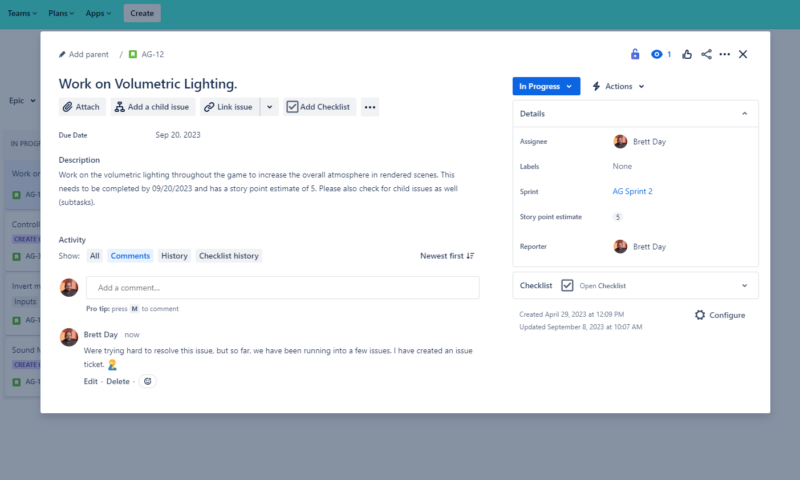
Product owners and project managers must both be excellent
communicators, whether in person or via messaging tools.
Areas of Role Overlap for Project Managers and Product Owners
Though project managers and product owners have different responsibilities, there is some overlap between them, as they both must ensure the project’s success. Below, we’ll look at a few areas where the two roles overlap.
- Planning: Both roles are responsible for ensuring the project is successful; therefore, they overlap when it comes to planning. Both parties must ensure that there are no major discrepancies with the plans and timelines on the project board.
- Communication: Individuals in both roles will find themselves in many of the same meetings. Though POs are responsible for managing stakeholders, both will interact with them, just like both will communicate with the rest of the team.
- Staff management: Leadership might look slightly different for project managers and product owners, but both are responsible for managing teams. The project manager is responsible for the whole team, while the PO is responsible for the dev team. Still, paths will cross here.
Product Owner vs Project Manager Salary
On average, certified project managers holding the Project Management Professional certification can earn 32% more than those who don’t in the U.S. and 16% more globally.1 On average, a certified project manager can earn roughly $157,000 annually.2
Certified product owners holding the Certified Scrum Product Owner certification or any other product owner certification are in for a treat. In 2018, the job market for product owners was expected to grow by 10% by 2028.3 Product owners can earn up to $130,000 annually in the United States.4
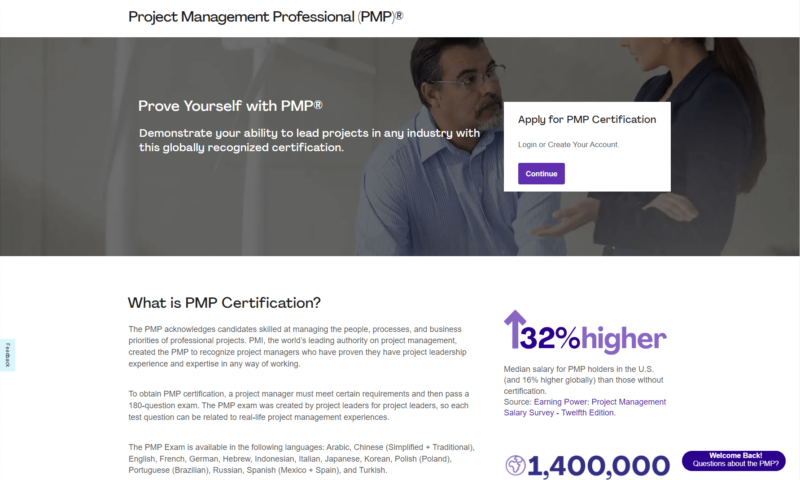
You can significantly enhance your earning potential by obtaining
project management and product owner certifications.
Which One Should You Choose?
Choosing between the roles of product owner and project manager can be challenging. Below are several factors you should consider before making the choice.
- Salary: While both positions offer great pay, project managers do have the potential to make more money than product owners. Of course, salaries vary by market, but if money is a driving force, you may want to consider project management over product owner roles.
- Hard and soft skills: If you like to mentor others and plan projects, you’ll likely enjoy the project manager role. However, if you enjoy making tough decisions and working closely with software development teams, you will enjoy the product owner role more.
- Education: There is a wide variety of certifications available for both POs and project managers. If you already hold certifications or have experience that would make a transition into one of these roles easier, following the path of least resistance might be beneficial. Just know that certifications for both roles exist and are obtainable.
Final Thoughts
There are some significant differences between project manager and product owner roles. What isn’t up for debate is how critical each role is within the scrum framework and other project management methods. No matter which role you choose, you’ll become a vital team member and will have significant responsibilities. Either way, you can expect to earn a great salary.
Have you decided to move into the product ownership or project management field? What interests you most about each position? Will you be trying to obtain one of the certifications we listed? Let us know in the comments, and as always, thanks for reading.
FAQ: Project Manager vs Product Owner
-
PO in project management stands for “product owner.”
-
A product owner is responsible for leading development teams and ensuring clients and stakeholders receive maximum value. Project managers are responsible for creating project scopes, managing risk, budgeting, leading teams and ensuring project guidelines are followed.
-
In companies that use all three positions, the product manager is responsible for the product vision and understanding what the customer wants. The product owner leads the development team and ensures the product matches the product vision. A project manager oversees the project and sets timelines, schedules and budgets.
-
Product owners lead a development team and ensure that the software being worked on matches the product vision. Project managers oversee entire projects and set budgets, timelines and schedules, while scrum masters lead small teams and ensure that agile and scrum best practices are being followed at all times.
PO in project management stands for u201cproduct owner.u201dn”}},{“@type”:”Question”,”name”:”What Is a Product Owner vs Project Manager?”,”acceptedAnswer”:{“@type”:”Answer”,”text”:”
A product owner is responsible for leading development teams and ensuring clients and stakeholders receive maximum value. Project managers are responsible for creating project scopes, managing risk, budgeting, leading teams and ensuring project guidelines are followed.n”}},{“@type”:”Question”,”name”:”What Is the Difference: Product Manager vs Product Owner vs Project Manager?”,”acceptedAnswer”:{“@type”:”Answer”,”text”:”
In companies that use all three positions, the product manager is responsible for the product vision and understanding what the customer wants. The product owner leads the development team and ensures the product matches the product vision. A project manager oversees the project and sets timelines, schedules and budgets.n”}},{“@type”:”Question”,”name”:”What Is the Difference: Product Owner vs Project Manager vs Scrum Master?”,”acceptedAnswer”:{“@type”:”Answer”,”text”:”
Product owners lead a development team and ensure that the software being worked on matches the product vision. Project managers oversee entire projects and set budgets, timelines and schedules, while scrum masters lead small teams and ensure that agile and scrum best practices are being followed at all times.n”}}]}]]>
Sources:
- PMP salary stats
- PMP salary average
- Product owner stats
- Product owner salary average
Let us know if you liked the post. That’s the only way we can improve.
Also interesting
Last published on Cloudwards:
Originally a software engineer, Aleksander decided to leave the office lifestyle behind to live as a digital nomad. He now spends his time writing about technology and tourism, which allows him the freedom to call many different places home. When he’s not writing or editing, he likes to read fantasy/sci-fi, listen to podcasts about history and politics and travel.
Last published on Cloudwards:
Igor is one of the fact-checking editors for Cloudwards. As a man of many talents, he has worked in customer service and SEO, is proficient in video and audio editing, and is also a trained opera singer, gracing European stages with his hometown church choir. Outside of work, Igor’s passions encompass music performance, fitness and capturing moments through travel photography. With a life enriched by diverse pursuits, Igor’s story unfolds rapidly, with many of the chapters yet to reveal themselves.
Source


